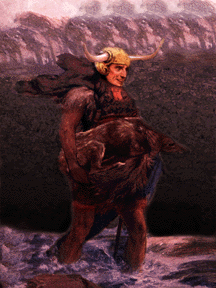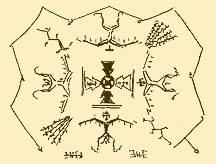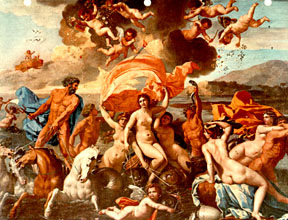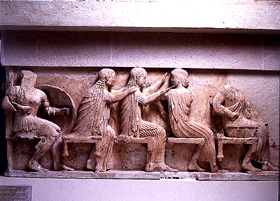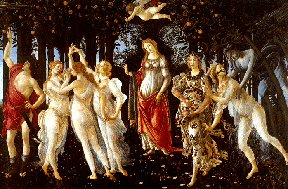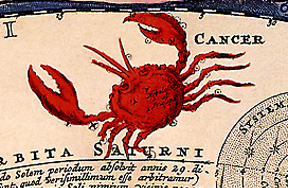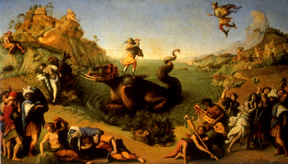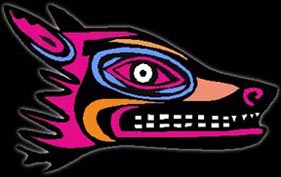Click on image for full size
Nate Proulx, Windows to the Universe Original
Lugh
Lugh, whose name means "the shining one," was the Celtic Sun god. The underworld god Balor was his grandfather. Balor was the leader of the Fomorii. The Fomorii were evil people that lived in the darkness of the underworld. According to a prophecy, Balor had to be killed by his grandson. To prevent this from happening, Balor had his daughter Ethlinn imprisoned in a crystal tower .Nonetheless, Cian, the son of the medicine god, entered the tower . Ethlinn gave birth to a child whose name was Lugh. Unfortunately, as soon as the child was born, Balor had him thrown into the sea to drown. Lugh miraculously escaped from his destiny of death and was raised in the utmost secrecy by the god of the sea, Manannan. He learned the skills of the arts and crafts, and became an expert warrior.
When he reached manhood, he joined the Tuatha De Danaan, "the peoples of the goddess Dana" in their struggle against the Fomorii. During a desperate battle, the king of the Tuatha De Danaan died, being hit by the evil gaze of Balor. Balor had a malicious gaze capable of killing whomever looked at it. However, Lugh threw a magic stone ball at Balor's eye, and killed Balor as the prophecy had predicted. Lugh then became the king of the Tuatha De Danaan.
Lugh corresponds to the Welsh god Lleu and the Gallic Lugos. From Lugh's
name derives the names of modern cities such as Lyon, Laon and Leyden.
Today, people remember the figure of Lugh with a festival which
commemorates the beginning of the harvest in August. The feast of Lugh,
called by the Celts "Lughnasadh", is better known now as Lammas, or the
feast of first fruits.


